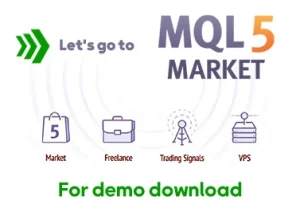Capitalizing on Discrepancies:
Understanding Arbitrage in Forex and Crypto
In the fast-paced world of trading, exploiting inefficiencies for profit is a constant pursuit. One strategy that capitalizes on these fleeting opportunities is arbitrage. Let’s delve into the concept of arbitrage, its application in forex, and how it can be used in the cryptocurrency market as well.
Arbitrage: Pocketing the Price Difference
In essence, arbitrage is the practice of simultaneously buying and selling the same asset in different markets to profit from price discrepancies. Imagine buying apples for $1 at Market A and selling them for $1.10 at Market B. That’s a simple example of arbitrage in action.
This strategy thrives on the idea that markets are interconnected but not always perfectly synchronized. These short-lived price variations present opportunities for arbitrageurs (traders who employ arbitrage) to lock in a risk-free profit.
The Art of the Deal: Bringing Arbitrage to Forex
The foreign exchange market (forex) is a vast and dynamic landscape, ripe for arbitrage opportunities. There are three main methods to execute arbitrage:
- Spatial Arbitrage: This involves exploiting price differences on different exchanges. In our stock example, exchange B offered a slightly higher price, allowing for an arbitrage opportunity.
- Time Arbitrage: Here, the trader capitalizes on price fluctuations within the same market over time. Buying an asset when its price dips and selling it when it rebounds is a form of time arbitrage.
- Triangular Arbitrage: Imagine a scenario where the exchange rate between USD, EUR, and GBP is not perfectly aligned. You could buy USD with EUR, then sell those USD for GBP, and finally convert GBP back to EUR – ending up with a slightly higher amount of EUR than you started with.
Forex Arbitrage: A Balancing Act
Forex, the foreign exchange market, is a prime ground for arbitrage due to its vast network of participants and constant price fluctuations. Here’s how arbitrage plays out in forex:
- Platform Arbitrage: Similar to spatial arbitrage, traders exploit price differences for currency pairs between forex brokers.
- News Arbitrage: Major news events can cause temporary price swings. Arbitrageurs can capitalize on these by buying on platforms where the price hasn’t yet reacted and selling where it has already adjusted.
The Nuances of Forex Arbitrage
While arbitrage sounds lucrative, forex markets are highly efficient, making these opportunities rare and fleeting. Here’s why:
- Transaction Speeds: Executing trades needs to be near-instantaneous to capture price discrepancies before they disappear.
- Transaction Costs: Brokerage fees and currency conversion charges can eat into potential profits.
- Market Efficiency: Modern forex markets are highly efficient, with sophisticated algorithms constantly monitoring prices. This makes true arbitrage opportunities rare and fleeting.
Cryptocurrency and the Arbitrage Frontier
The cryptocurrency market, with its inherent volatility, also presents arbitrage opportunities. However, factors like transaction fees and exchange delays can eat into profits. Here are some types of crypto arbitrage:
- Exchange Arbitrage: Similar to forex, price discrepancies between cryptocurrency exchanges can be exploited.
- Market Making Arbitrage: This involves buying and selling cryptocurrencies on the same exchange to capture the bid-ask spread (the difference between the buy and sell price).
The Bottom Line: Arbitrage – A Viable Strategy, But With Caveats
While arbitrage seems like a guaranteed money-making scheme, there are crucial factors to consider:
- Speed: Markets are becoming increasingly efficient, and price discrepancies disappear fast. Automation and high-frequency trading algorithms often have the edge.
- Transaction Costs: Execution fees, commissions, and network delays can significantly reduce profits, especially in the cryptocurrency market.
- Market Conditions: Arbitrage opportunities are more prevalent in volatile markets, but these conditions also heighten risks.
Conclusion:
Arbitrage offers a way to capitalize on market inefficiencies, but it’s not a risk-free path to riches. Understanding the different methods, market dynamics, and associated costs is crucial. For most traders, focusing on fundamental and technical analysis to identify profitable trends might be a more realistic approach. However, keeping an eye out for potential arbitrage opportunities can add a valuable tool to your trading arsenal.
Disclaimer: This article is for informational purposes only and should not be considered financial advice. Please consult with a qualified financial advisor before making any investment decisions.
Happy trading
may the pips be ever in your favor!











